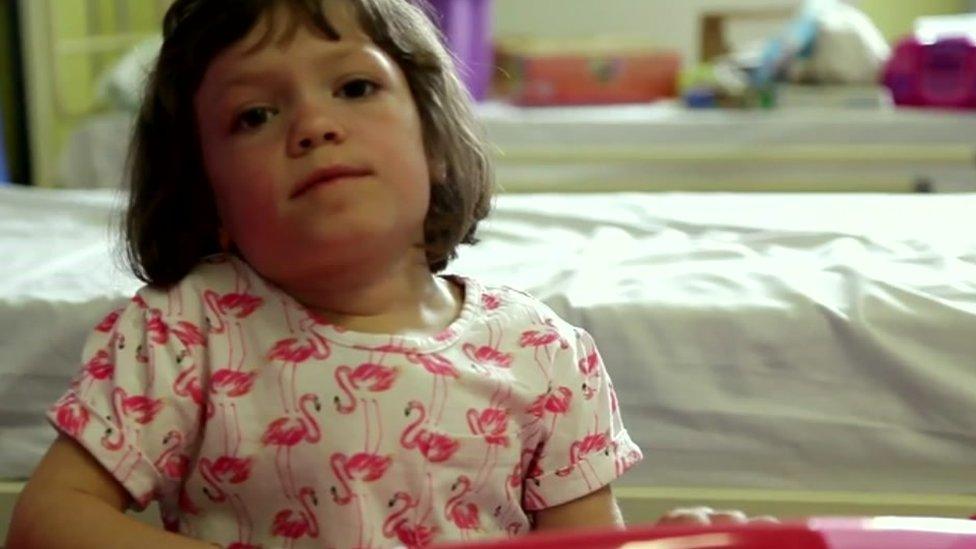Gracie, 9, wins drug funds for 'ultra-rare' condition
- Published

A schoolgirl with an "ultra-rare" genetic condition is celebrating a decision to fund life-changing medication on the NHS in Wales.
Nine-year-old Gracie Mellalieu, from Flintshire, is one of just five people in Wales with Morquio Syndrome, which affects the way bones and joints grow.
She has been trialling a new drug called Vimizim, which has now won Welsh Government approval.
It will cost about £880,000 a year to treat eligible patients in Wales.
"We were just fingers crossed waiting around for a long time, it's been constant waiting, hoping things are going to happen," said Gracie's mother, Yvette.
"It's just a huge weight off our shoulders. We just feel so happy that the result has been a positive one."
The drug was approved for use in England in December last year, but a decision had to be made on whether it would be available on the Welsh NHS.
"Yes, it is an expensive drug, but what you have to think there is it is an ultra-rare disease being treated by a drug that can't just be pushed out like paracetemol," argued Gracie's mother.
"It's going to take a lot more research to develop the drug, which is the enzyme that Gracie is missing, that is putting it back into the body.
"I think it is wrong to say somebody like Gracie doesn't deserve that because it is expensive. She has a lot to give to life and a lot to give to society."

Gracie, who lives in Mynydd Isa near Buckley, has been receiving weekly therapy with the drug at Wrexham Maelor Hospital.
It has led to a great improvement in her condition, with better lung function, improved eyesight and she does not need to use a wheelchair to get about.
The campaign to get the drug approved for Gracie received a huge boost when the schoolgirl was captured on camera singing a song to thank hospital staff, external.
Announcing the decision to fund the new drug, the Health Minister Mark Drakeford said he had listened to the advice of the All Wales Medicines Strategy Group.
It said the medicine was both a clinically and a cost effective way to treat the disease.
"Up until now we've only had therapies that are things that help people to manage with the condition," explained Mr Drakeford.
"This new drug Vimizim actually makes a difference to the condition itself. It will really make a difference."
- Published4 June 2015

- Published27 May 2015
